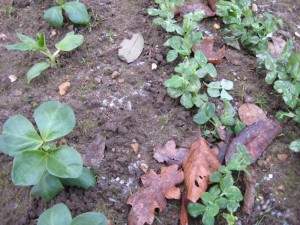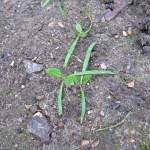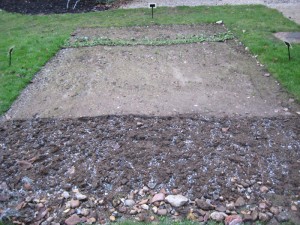On Tuesday 5th January the allotment was visited before the subsequent significant evening snowfall. An hour after the visit, the snow started to fall. By morning Reading was covered in a thick blanket of 8-10 inches of snow.
At the time of the visit all the vegetables were remarkably still alive. The broadbeans and garlic looked very healthy, but the peas looked like they are suffering from frost damage.

Three days later, the snow has not melted. The UK and indeed much of the northern hemisphere have been engulfed by freezing temperatures. Business is not as usual for many in the UK, because roads are hazardous with snow. The largest snowfall in thirty years in the UK or the freezing winter temperatures were unpredicted, these conditions are the weather, they do not indicate climate change is not warming and if anything are all part of that, because the southern hemisphere is experiencing higher temperatures than ‘normal’ for this time of year.
How weather conditions affect society as behavorial patterns adept to limitations of conventional activity through commerce and consumption is played out through profit and loss. Vegetations slow growth, in winter’s freezing and snowy conditions, lies dormant. However if the plant is not one that over winters this can result in demise and crop failure.
The winter spinach plants on the allotment plot were not planted earlier enough to provide food for winter, but their growth may increase if the weather becomes warmer.

